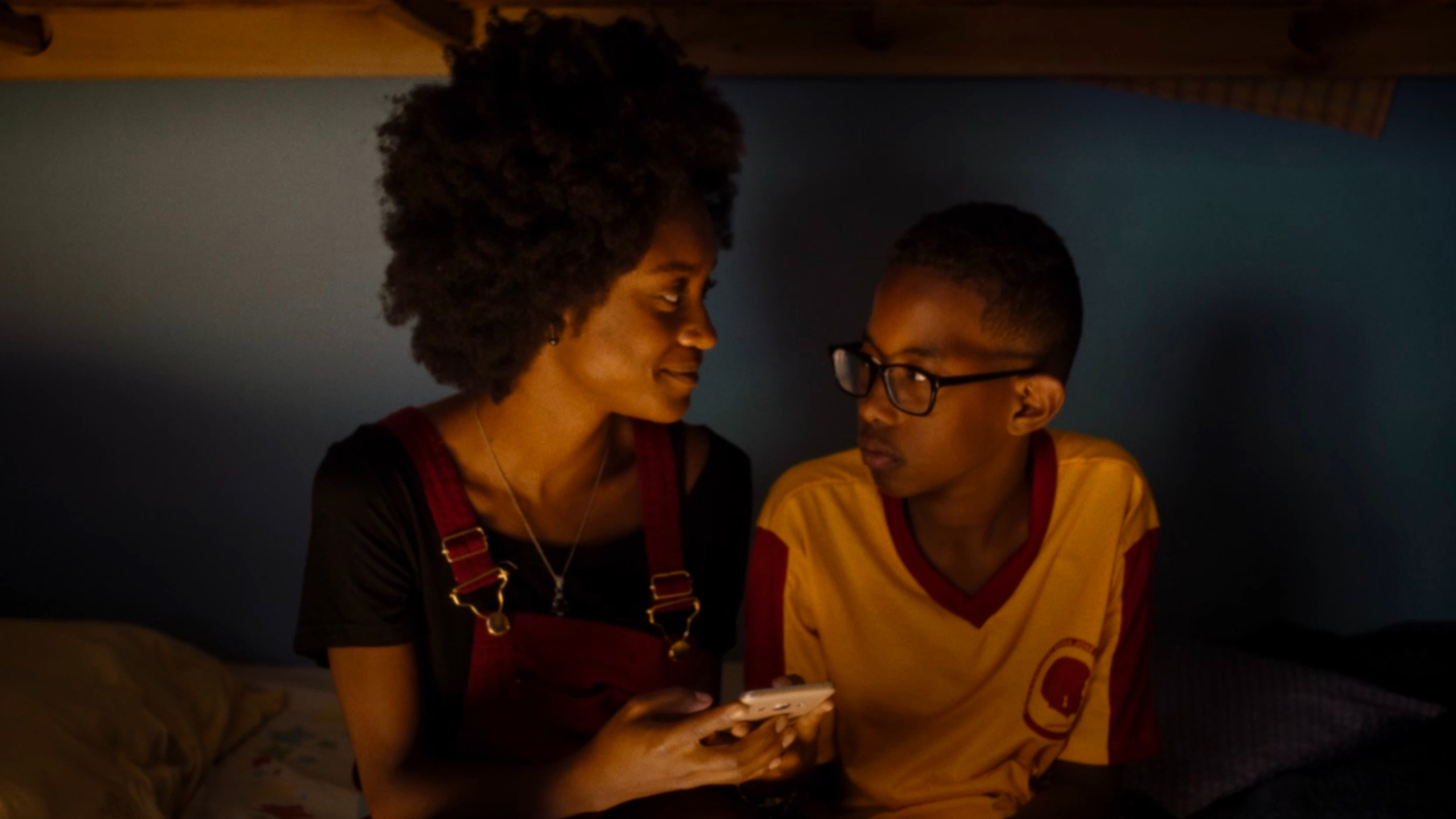There’s an entire universe out there, even when it feels like your corner of the world has been turned upside down. Who has not felt like they’ve been roaming a foreign planet at one point or another? Mars One, Gabriel Martin’s moving drama of working-class social realism, begins with the election of Jair Bolsonaro, but to the family at the center of the film, he’s a minor figure in an otherwise world of extreme inequalities in Belo Horizonte. The ensemble drama follows a nuclear working-class family living in a small but somewhat happy home, including father Wellington (Carlos Franciso), who works as a superintendent in a wealthy luxury apartment complex; mother Tercia (Rejane Faria) a housekeeper; law student daughter Eunice (Camilla Damiao); and twelve-year-old son Deivinho (Cicero Lucas).
Much of the film’s first act lovingly captures the rhythms of normal life for the family including work, school, and, in the case of Deivinho, being pushed to become a soccer star by Wellington. Politics do creep in at the edge of the narrative––Wellington is more or less a “pull yourself up by the bootstraps” kind of guy, engaging in political conversations with a younger co-worker Flavio (Cicero Lucas), who fantasizes about overtaking the luxury condo and displacing its residents. Eunice, also politically left, takes a course in prison reform that discusses an intertwined U.S.-Brazilian view on incarceration. Sharing a room with brother Deivinho, she fantasizes about her own apartment as she starts a relationship with Joana (Ana Hilario), but has not yet come out to Tercia and Wellington.
Tercia is a hardworking freelance housekeeper whose life is shaken in an instance by a prankster who walks into the cafe she’s eating lunch in and threatens to blow up the place with a fake stick of dynamite for a prank TV show. The episode ends up haunting Tercia, who believes what comes to follow is a result direct result of that encounter. Later in the film, she dismisses a man having a seizure on a bus in a moment she immediately regrets.
Despite a talent for soccer, Deivinho becomes interested in the Mars One project and the lectures of celebrity astrologer Neil deGrasse Tyson. His dream is instead to travel on that mission, one that feels distant for Wellington who struggles with his own demons. The film itself operates in a mode that reminds one of the early works of Mike Leigh, ensemble films like Life is Sweet and High Hopes that chronicle working-class life in the Thatcher era.
Despite a third act that felt a bit rushed (then again, life is never perfectly ordered), the film is a beautifully crafted work of social realism that follows the dreams, hopes, and challenges of parents working to give their kids better lives even at their own expense in the midst changing political tides. For their kids, the film explores the most exciting point in one’s life: the journey of self-discovery. For Tercia and Wellington, they crave stability, not interested in a discussion about the exploitation of labor as it is their lived experience.
Mars One was funded by a grant for Black Brazilian projects that has since been canceled by the Bolsonaro government. Made in 2018 shortly after Bolsonaro’s election, the film is more or less a forward-looking period film that reflects upon a time of uncertainty and political change. It’s also a time of profound personal change for Wellington, Eunice, and Tercia while Deivinho keeps his head held high, towards the sky. The film’s structure allows us to spend time both together and individually with each character, veering off with them for a day at the office, school, dance club, or park. It is simultaneously a slice of life and a film about the bigger picture.
Mars One premiered at the 2022 Sundance Film Festival.

